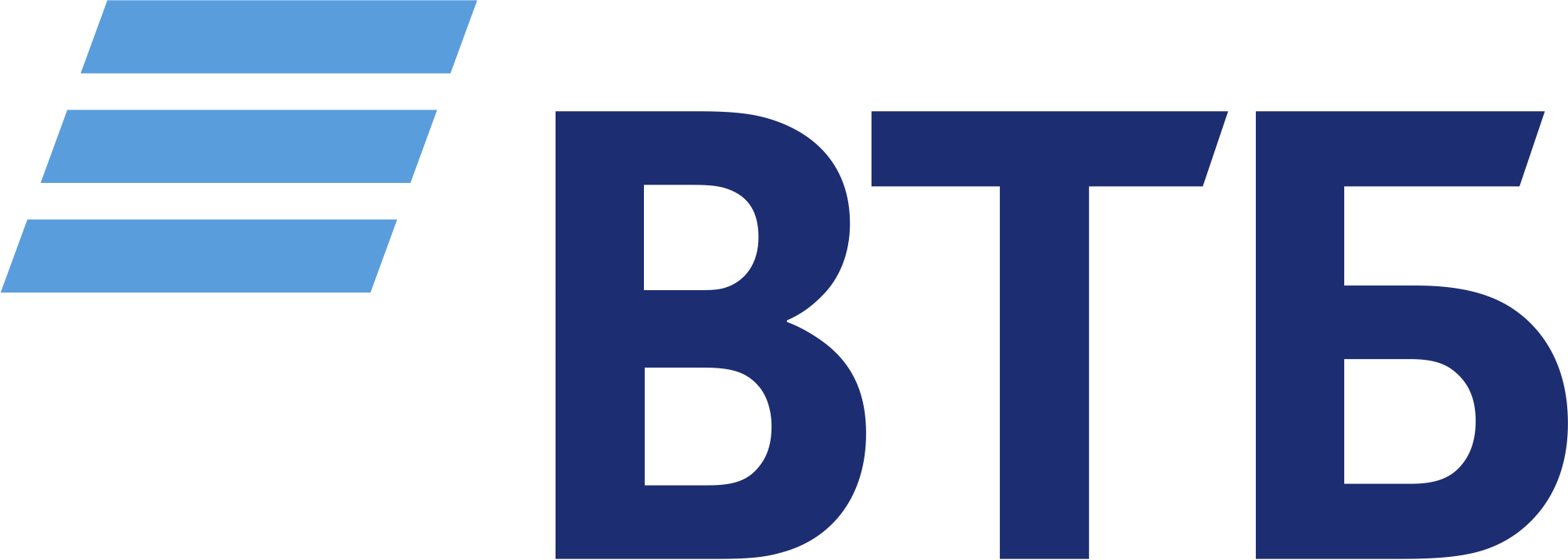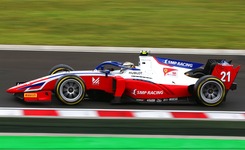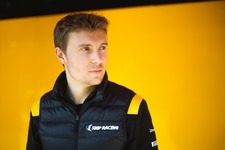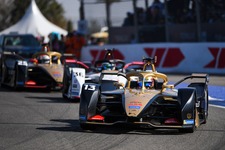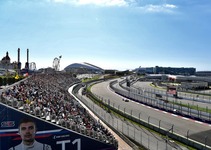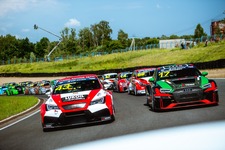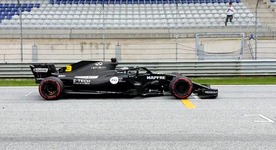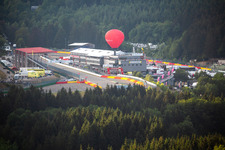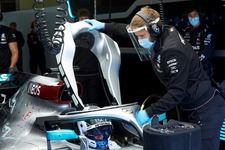ENGINE
- 3.0L inline 6 cylinder engine (S55) with two mono-scroll turbochargers
- 3,027 cc (compare to 2,979 cc of N55)
- 89.6mm bore / 80mm stroke over-square (compare to 84mm bore / 89.6mm stroke under-square of N55)
- Derived from N55 engine
- Direct Injection
- VALVETRONIC
- Double-VANOS
- closed-decked crankcase (4.4 lbs / 2kg lighter)
- twin-wire arc-spray coating (instead of liners) in cylinder bores reduce engine weight
- 20 lbs lighter than V8 S65 engine (from E90/E92 M3)
- 430 HP (approximately) from around 5000–7300 RPM
- «far beyond» 369+ LB-FT (500 Nm) from under 2000 RPM to over 5000 RPM
- Slightly above 7500 RPM redline
TURBOS
- Two Mitsubishi mono-scroll turbochargers
- 18.1 PSI / 1.25 BAR max peak
- Pre-tensioned in Sport and Sport+ modes (keep spinning at a high rate of speed even after throttle lift-off, for ultra quick response — more details)
- Impulse charging for optimized responsiveness
- Flow-enhanced manifolds
- Electric wastegate actuator
COOLING
- Double-flow oil recirculation pumps
- Turbocharger suction system
- Main radiator plus additional radiators for the high- and low-temperature circuits, turbocharger and transmission
- indirect intercooler (sits atop engine, necessitating hood bulge)
- Low-weight magnesium oil sump (2.2 lbs / 1kg lighter)
- Temperature-stabilizing electric water pump
WEIGHT
- Under 3,306 lb (1500kg) weight
- this figure is without driver and with 90% fuel
- BMW clarifies that «the new model is now around 80 kilograms [176 lbs] lighter than a comparably equipped predecessor model»
- compare to E46 M3 at ~3,400 lb curb weight
- compare to E92 M3 at ~3,600 lb curb weight
- compare to C63 AMG at ~3,900 lb curb weight
- compare to RS5 at ~4,000 lb curb weight
- ~ 7.68 lb/hp power to weight
- compare to E92 M3 at 8.7
- compare to C63 AMG at 8.7
- compare to RS5 at 9.0
- compare to E46 M3 at 10.25
- Fuel consumption and emissions reduction of 25%
CARBON FIBER CONSTRUCTION / BODY
- CFRP drive shaft (tested for speeds up to 205 MPH)
- 40% weight savings over previous M3
- Increased stiffness
- Reduced rotating mass for better acceleration and throttle response
- CFRP roof for both M3 and M4
- Saves 11 pounds (5kg) on M3
- Saves more than 13.2 pounds (6kg) on M4
- CFRP roof bow
- Carbon fiber trunk for M4 (11 pounds (5kg) weight savings)
- CFRP front strut brace standard (weighs just 3.3 pounds (1.5 kg))
- Front fenders and hood made from aluminum
TRANSMISSION
- Standard 6 speed manual transmission
- Automatic throttle blips on downshift
- More compact and quieter than predecessor E90/E92 M3 6 speed
- 26.4 pounds (12kg) lighter
- Carbon fiber friction linings in synchroniser rings
- Dry sump lubrication
- Optional 7 speed M DCT (double clutch transmission) with launch control
- Active M Differential with constantly variable locking (a la M5/M6), from 0 to 100 percent
- Forged crankshaft
STEERING
- Entirely new electric power steering (EPS) unit, built by ZF
- Specially tuned for M3/M4
- Servotronic function electronically adjusts the level of steering assistance
- Three modes: Comfort, Sport, Sport+
- Will not compensate for understeer, oversteer, coarse road surface. Motor will not help unwind the steering wheel and it will self-center by by natural forces
SUSPENSION / CHASSIS
- Optional EDC Adaptive M suspension (with Comfort, Sport, Sport+ modes)
- CFRP front strut brace
- Double-joint spring strut front axle (saves 11 pounds)
- New five-link rear axle made from forged aluminum (saves 6.6 pounds)
- Aluminum suspension
- Aluminium stiffening plate
- Rear axle subframe fixed directly to body (bolted joints between the axle subframe and the body sills, without use of elastic rubber elements).
WHEELS / BRAKES
- 18 and 19 inch options will be available
- Lightweight forged wheels standard
- Staggered tire sizes — 255/35 ZR front and 275/35 ZR rear
- Prototypes fitted with Michelin Pilot Sport tires, but other tire brands will be certified as well
- M compound brakes standard (in blue)
- Four piston front / two piston rear
- M carbon ceramic brakes optional (in gold)
- Six piston front / four piston rear
EXHAUST
- Exhaust features electrically controlled flaps just before rear silencer to minimize exhaust back-pressure as well as giving precise feedback on engine load.
- When closed, flow is forced into and laterally across the silencer; when open, flow is more directly through the narrow part of the silencer.
- Catalysts with metal substrate (less restrictive than ceramic)
- Exhaust always exits all four tail pipes
AERO
- 50:50 weight distribution
- Air Curtain
- M gills with integrated Air Breather behind front wheels
MISC
- The M3/M4 standalone components amounts to roughly 50 per cent. This includes body, chassis and powertrain components.
- Llithium-ion starter battery under consideration.
- M3 and M4 to be introduced together (at Detroit NAIAS 2014 in January).
- M3 and M4 developed with help of BMW race car drivers Bruno Spengler and Timo Glock's participation in extensive testing and set- up runs on the Nürburgring-Nordschleife circuit, focusing on assessment of the cars’ suspension, tyres and all elements of the powertrain.
